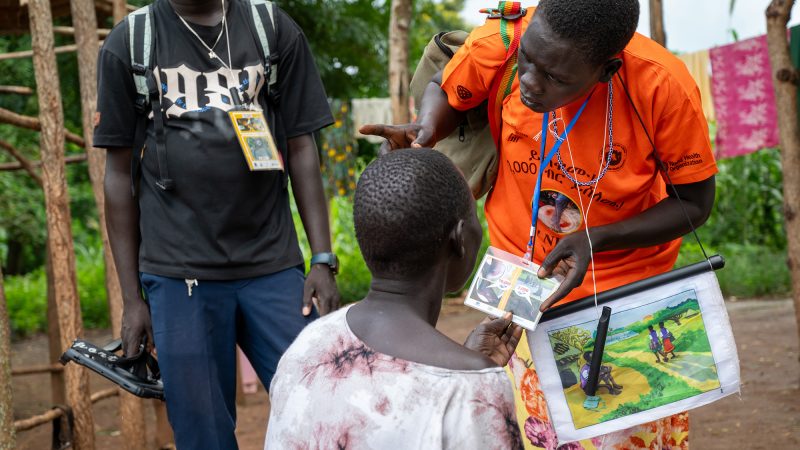Ethiopia
Ethiopia has one of the highest neglected tropical disease burdens in the world, and the Carter Center’s health programs help millions avoid preventable suffering through campaigns to eliminate river blindness, trachoma, lymphatic filariasis, and Guinea worm disease.
Since 1988, we have maintained partnerships with Ethiopia’s national and regional governments to improve health, advance peace, and strengthen democracy.
Our peace initiatives have helped mediate conflicts, strengthen democratic institutions, and promote human rights protections. From facilitating peace negotiations in 1989 to observing elections and strengthening civil society, we have demonstrated a powerful commitment to Ethiopia’s people.
Short-term Goals
We are working to reduce trachoma prevalence, eliminate river blindness and lymphatic filariasis, and eradicate Guinea worm disease.
Impact
- Nearly eliminated Guinea worm disease
- Controlled trachoma so that 6.6 million people no longer need mass antibiotic treatment
- Led the nationwide mapping of river blindness with state-of-the-art methods
- Interrupted transmission of river blindness in 17 districts in the South West Ethiopia People’s and Oromia regions so that regular drug treatments could be stopped for more than 1.3 million residents
- Facilitated the first peace negotiations between the Ethiopian government and Eritrean liberation forces in 1989
Trichiasis With and Without Tarsal Conjunctival Scarring: A Multi-Country Observational Study
Are Children Least Engaged With Health Care More Likely to Have Trachoma?
Characterizing Trachoma Elimination Using Serology

Related Content
Global Impact Starts with You
Your support sustains the Carter Center's mission of waging peace, fighting disease, and building hope around the world.



